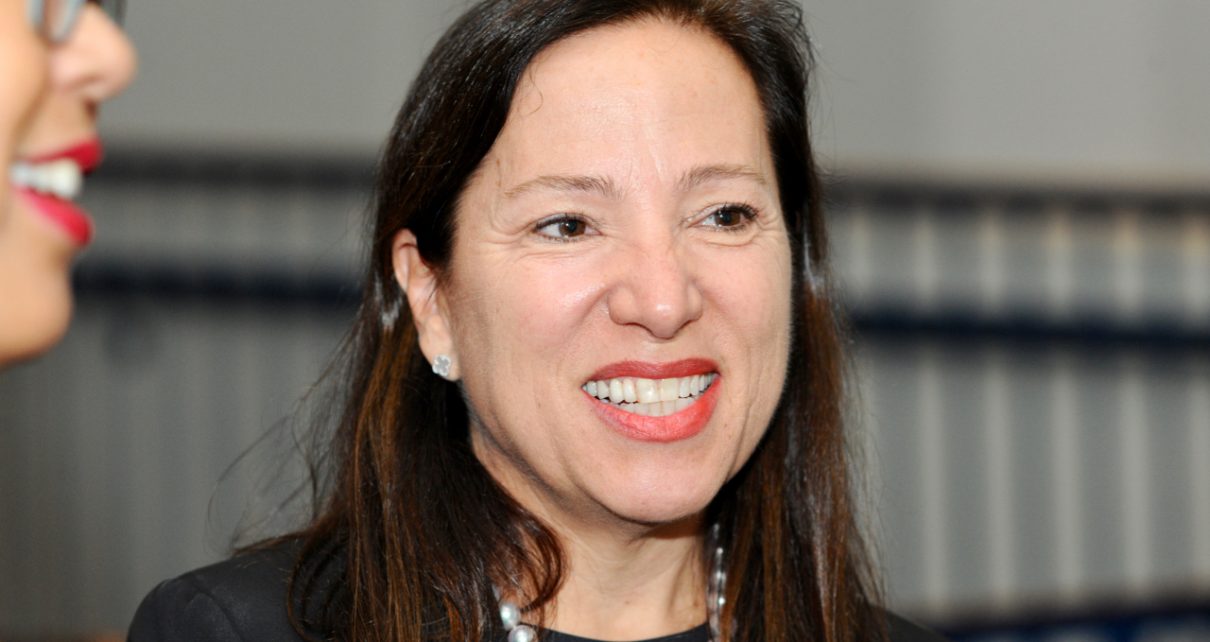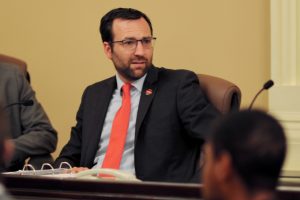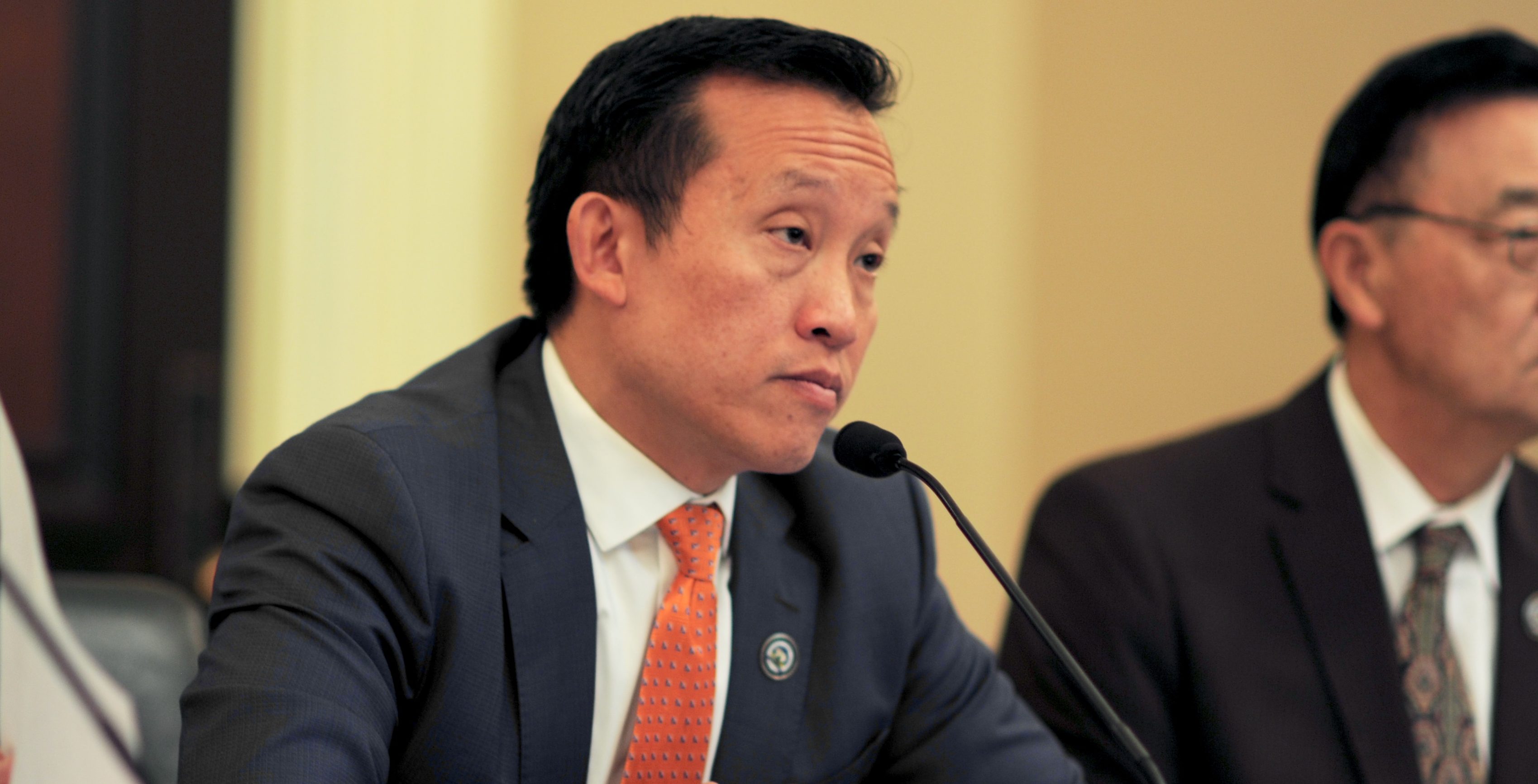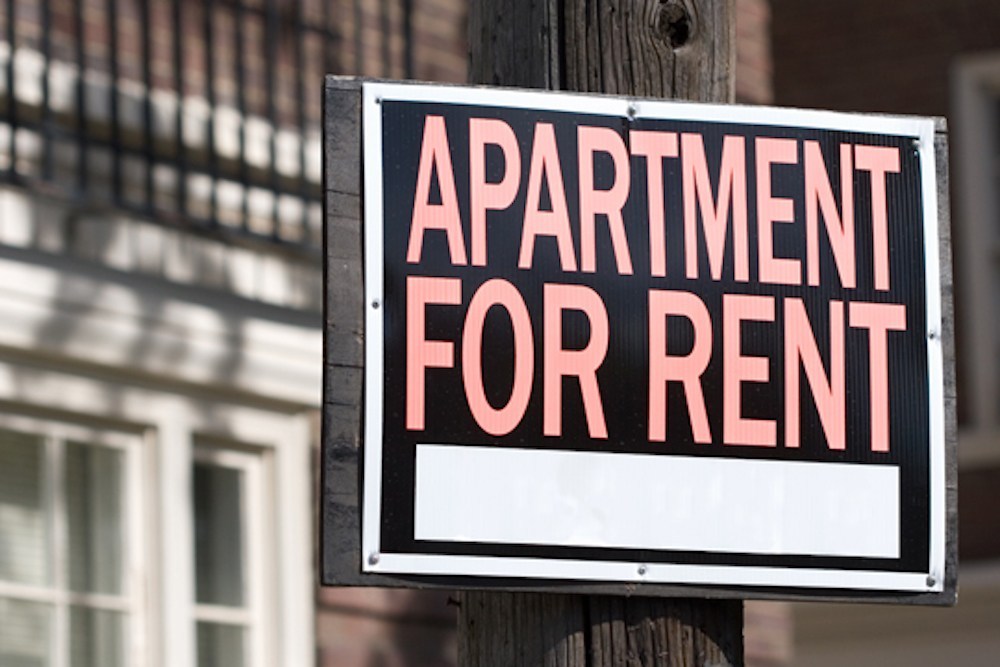
Lt. Gov. Eleni T. Kounalakis (Photo: Kevin Sanders for California Globe)
Lt. Gov Kounalakis Signs Eviction Moratorium Extension Bill into Law
Only $2.5 billion of the combined $6.2 billion in federal California rent relief has been given out
By Evan Symon, April 1, 2022 2:17 am
First passed in the early months of the COVID-19 pandemic in the spring of 2020, statewide eviction moratoriums have been extended numerous times in 2020, in 2021, and, due to the rise of different variants, through 2002 until March 31st of this year. However, in the past two years, both tenants and landlords alike have faced numerous hardships and questions about eviction.
For tenants, they have largely been protected from eviction by numerous state and local laws stemming from the pandemic, especially if they lost work and were protected by law to stay even if they couldn’t pay. However, many became apprehensive about having to pay back all back rent once protections ended, with many fearing mass evictions. New moratoriums that passed in 2021 that allowed tenants to stay as long as they paid at least 25% of the rent each month as long as they attested that they had faced financial hardships due to COVID-19, was thought by many to help transition back to paying rent normally, but instead led to many simply paying less for several more months regardless.
In contrast, landlords, especially smaller landlords with only one or two properties, quickly faced rapidly growing debts due to tenants not having to pay rent and the state not giving grants or relief directly tied to these missed rent payments. Tenant relief bills were passed, helping many stay in homes, but landlords were largely left out. Some relief finally started coming in in 2021, but only for low-income tenants rents.
Finally, in August 2021, the state received $5.2 billion dollars to help tenants resume paying rent, and help landlords get out of debt caused by the months of unpaid rent from tenants. Split between state and local programs, along with another $1 billion program going to help homeowners who fell behind on mortgage payments, the program was expected to largely resolve the issues of missed rent and debt stemming from the pandemic.
However, going into the first months of 2022, only $2.5 billion of the combined $6.2 billion in federal relief allotted for California has been given out.
California received $5.2 billion last year from the federal government and established the program to keep renters housed and landlords out of debt. The state was responsible for administering around $2.6 billion for the state-run system, while local governments that set up their own programs were responsible for the rest. While bills allowed for the programs to pay up to 100% of debt or back rent and utility payments, restrictions on the program had remained high until February, with a huge backlog of tenants and landlords alike awaiting funds that many have been waiting on since the Trump Administration.
AB 1279
Assembly Bill 1279, authored by Assemblyman Tim Grayson (D-Concord), wrote the bill to address the large number of people still waiting for relief, protecting tenants from eviction who have put in for relief funds and landlords still waiting for funds to get them out of debt. Specifically, it will alter dates in the COVID-19 Tenant Relief Act to push back payment of rent demands from March 31st to June 30th of this year. The bill will also extend the date for which the requirements and limitations relating to COVID-19 rental debt repayment periods are determined to August 1, 2022. The bill will prohibit any provision by the specified local authorities permitting a tenant to repay COVID-19 rental debt beyond August 31, 2023.
New notices served before April 2022 will also include the new dates of repayment, with AB 1279 also stopping courts from issuing summons for rental issues pertaining to applications for government rental assistance to cover the rental debt demanded from the defendants until June 30, 2022 as long as the paperwork was properly filed before April 1st.

Assemblyman Grayson wrote the bill due to the continuing hardships both tenants and landlords face and to give them an extra three months for payments to be approved.
“We are not going to allow Californians to suffer, to lose their homes or even their income because of application processing times,” Grayson said on Thursday.
With the March 31st deadline approaching quickly, AB 2179, introduced only a month and a half ago ion February 15th, was fast-tracked for passage. Since Monday, AB 2179 was quickly passed in the Assembly, as well as through multiple Assembly and Senate Committees. Republicans, as well as more left-leaning Democrats opposed passage of the bill for either not ending the moratorium now or not extending it far enough past an additional three months. During the Assembly floor vote on Monday, 13 Republicans and Democrats refused to even vote on the bill. However, it still passed, leading to the Senate passing it on Thursday less than 24 hours before protections were due to expire.
Lt. Governor Eleni Kounalakis then quickly signed the bill into law, filling in for Governor Newsom who is currently on vacation in Costa Rica, becoming the first woman in California history to sign a bill into law.
Tenant, landlord payments going into the spring, summer of 2022
While many were happy with the extension, many supporters of the bill also noted that the many who did not file in time will be left out of the legislation, and could face major consequences starting next month.

“There’s no question that many people are being left behind in this legislation,” noted Senator Ben Allen (D-Santa Monica) on Thursday. “We are supporting this even though we know this is not complete legislation because we know it’s important for those who will be helped.”
Despite the support, landlords and landlord groups remained firmly opposed to AB 2179, saying that even a three month extension would bring even more devastation to landlords across the state.
“Small property owners have been devastated during the pandemic,” California Rental Housing Association member Gary DeLong said on Thursday. “The rent relief program is riddled with issues, and that an extension could force small landlords to sell their properties. We are hoping the extension will only affect a small number of people since the applications have to be filed by March 31. And we are encouraging our smaller members to hang in there. Hopefully, the end is in sight.”
Others agreed with DeLong’s assessment.
“Ever since the moratoriums have been in place, all we heard from Sacramento was about the tenants. Tenants this and tenants that,” said Marianne Morris, a landlord legal advisor, to the Globe. “But there hasn’t been all that much for landlords. And honestly, they’ve been the unsung heroes of the pandemic. They have carried the load of keeping tenants in who could not pay despite little help coming in from other places. And not everyone made it through. They deserve to be compensated in full for all lost rent, utilities, and other payments owed to them.”
State officials noted that following the signing of the bill on Thursday, payments to tenants and landlords are expected to be paid out through the spring and summer.
- Bill to Require Law Enforcement Disclosure if AI Was Used To Help Write Reports - August 7, 2025
- Gov. Newsom Files FOIA Request To ‘Expose True Cost’ Of L.A. Federal Troop Deployment for Anti-ICE Riots - August 6, 2025
- California Redistricting: How Newsom’s Plan Will Demolish Hard Fought GOP Gains - August 6, 2025





Owning apartments is now THE gateway to personal/ business bankruptcy to speedy grant deeding to affordable public housing…..so convenient…..so Redistribution….so Californian…
This horrid timeline has been in the works for years…..massive immigration of the low skilled, miserably performing government schools, discouragement of jobs and industries not enviro approved, exploitation of labor wherein Globalists changed California to a low ender service economy.
California already favors the “renter” over the property owners, to the extent of it being impossible to evict squatters, tenants not legally on a lease or rental agreement, and deadbeats claiming “Covid” for not paying rent.
Property owners pay the property taxes, not renters, so how bout cutting some laws in favor of the owners?